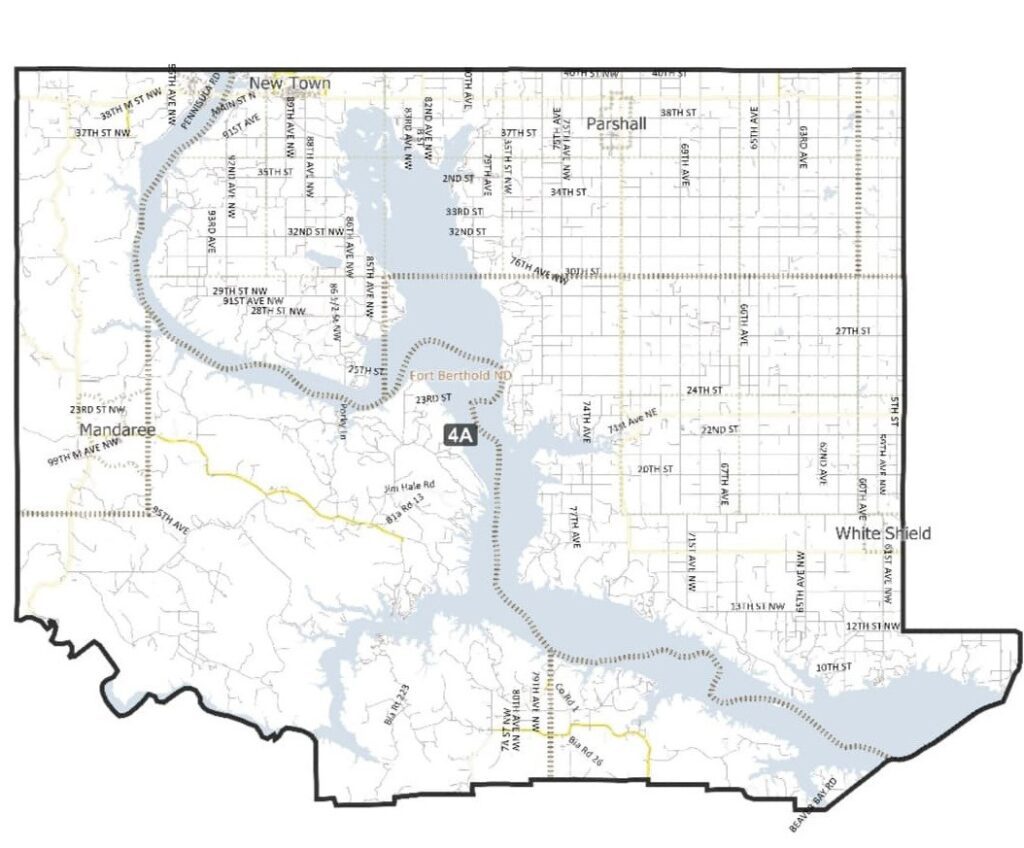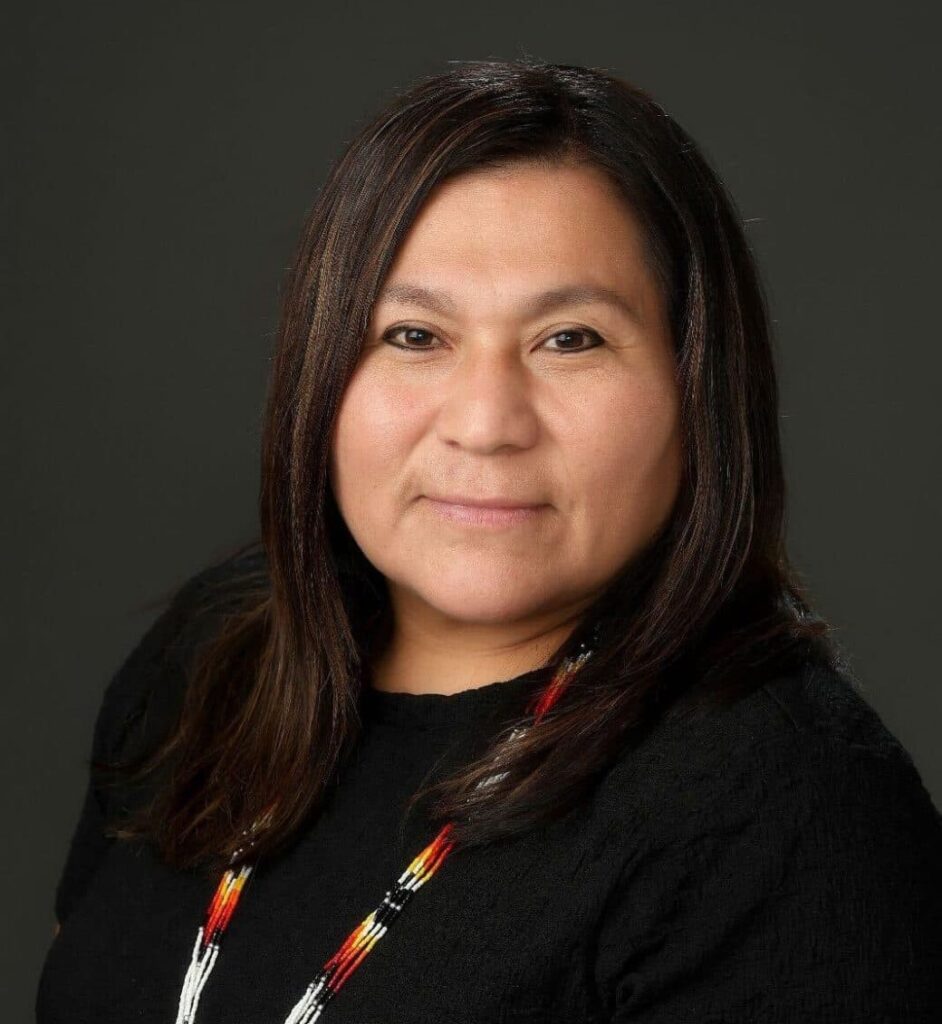MHA Nation secures key voting rights victory

District 4A encompasses the Fort Berthold Indian Reservation. The black outline is the entire legislative district, while the dashed lines mark the reservation’s segments. (Photo courtesy of the North Dakota Legislative Assembly)
‘Hard-fought progress toward fair representation is now protected’
The U.S. Supreme Court upheld a lower court’s ruling that sustains the creation of North Dakota’s House District 4A, benefiting voters from the Mandan, Hidatsa and Arikara Nation. The Jan. 13 decision ensures voters in the new majority-Native district will have a fair opportunity to elect state representatives.
In the case Walen v. Burgum, the North Dakota U.S. District Court found that the state complied with the Voting Rights Act in drawing District 4A roughly along the same lines as the Fort Berthold Reservation boundary. The legislature’s approval in the 2021 redistricting plan encouraged American Indian voters’ influence in state elections.
“This win strengthens the civil rights of every citizen in the state and allows rural and reservation voters an equal opportunity to elect the person they want to represent their community in the state legislature,” said MHA Nation Chairman Mark Fox in a statement.

District 4A Rep. Lisa Finley DeVille won her first four-year seat as soon as 2020 Census figures proved population distribution warranted a new majority-Native district in the state Legislature. She also intervened on the side of the state in the Walen v. Burgum case. / Photo courtesy of Lisa Finley-DeVille
The Three Affiliated Tribes intervened on the state’s side to defend the new district from Republican Party leaders such as Charles Walen of New Town, located on the Fort Berthold Reservation, who sued over the new voter map boundaries.
Native people are fully capable of governing our own lives and determining our futures. Decisions about our representation should be made with us, not imposed on us.”
-Lisa Finley-DeVille, District 4A Representative
The ruling addresses concerns over historical underrepresentation. According to the Native American Rights Fund, it reinforces the importance of following the Voting Rights Act during redistricting to ensure fair political representation for minority communities.
District 4A Rep. Lisa Finley DeVille, an MHA citizen, won her first four-year seat as soon as 2020 Census figures proved population distribution warranted a new majority-Native district in the state Legislature. Now, in her second term, she has also intervened on the side of the state.
“I’m glad this case has come to a close; it is a reminder of why Native people must have a seat at the table when decisions are made that impact our communities,” Finley DeVille said in an interview with Buffalo’s Fire. The redistricting process in North Dakota has historically been “a blatant power grab by party leadership, seeking to dilute the voices of Native voters and undermine fair representation.”
This decision could set a precedent for future redistricting efforts in states with large American Indian populations, according to the Native American Rights Fund.
Finley-DeVille, a Democratic Party member, helped draw the 4A map, and in the Legislature she has worked for policies prioritizing Indigenous communities’ interests.
“Native people are fully capable of governing our own lives and determining our futures,” she said. “Decisions about our representation should be made with us, not imposed on us. The hard-fought progress toward fair representation is now protected, and we must continue to advocate for equitable systems that honor our sovereignty and ensure our voices are heard.”
According to Indian law analyst Matthew Campbell, Indigenous intervenors supported North Dakota’s lower court win. At the same time, the state abandoned its position during the Supreme Court appeal, failing to defend the voting map and citizens’ rights. The ruling rejects anti-voter arguments that could harm all voters in the state.
In the Jan. 13 decision, the high court, acting on an opinion it requested from the U.S. Solicitor General, also threw out an appeal by the opponents of the creation of a new North Dakota Native-majority District 9A.
“This case determines the ongoing need for vigilance in defending our rights and ensuring that democracy works for all of us,” Finley-DeVille said.
The post MHA Nation secures key voting rights victory first appeared on Native Sun News Today.
Tags: More News
